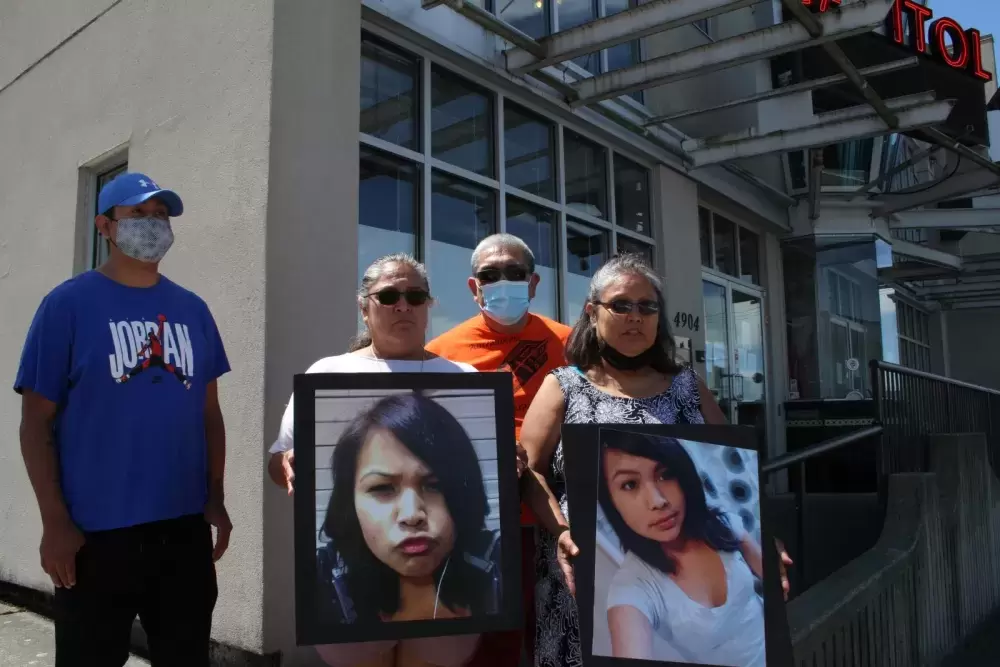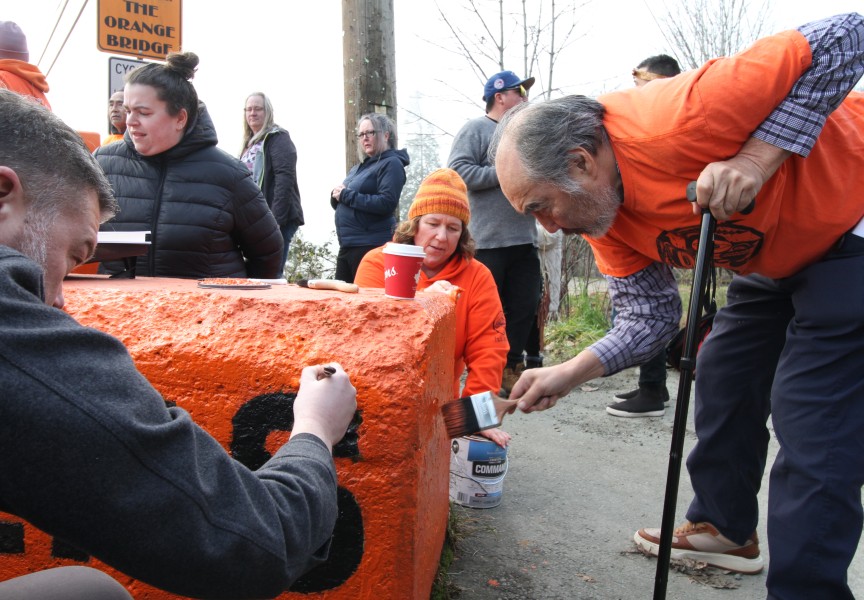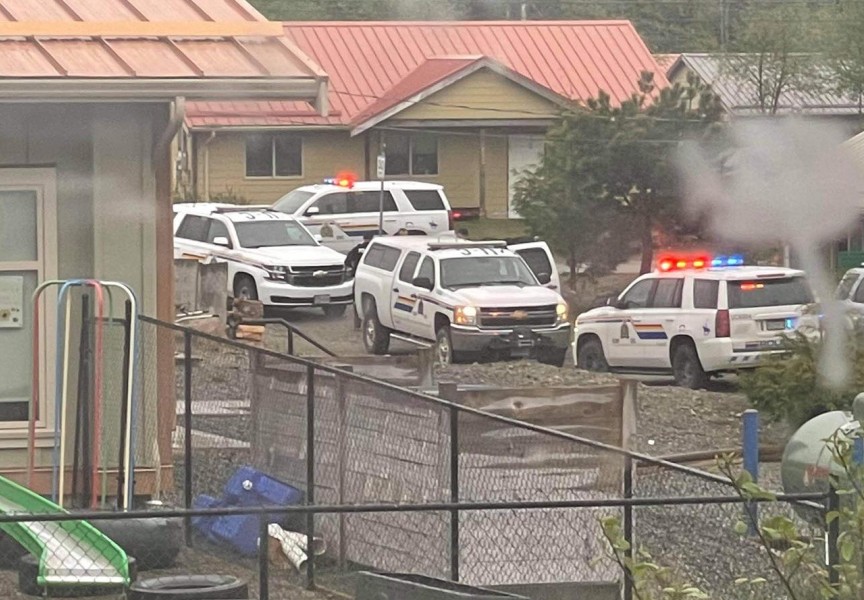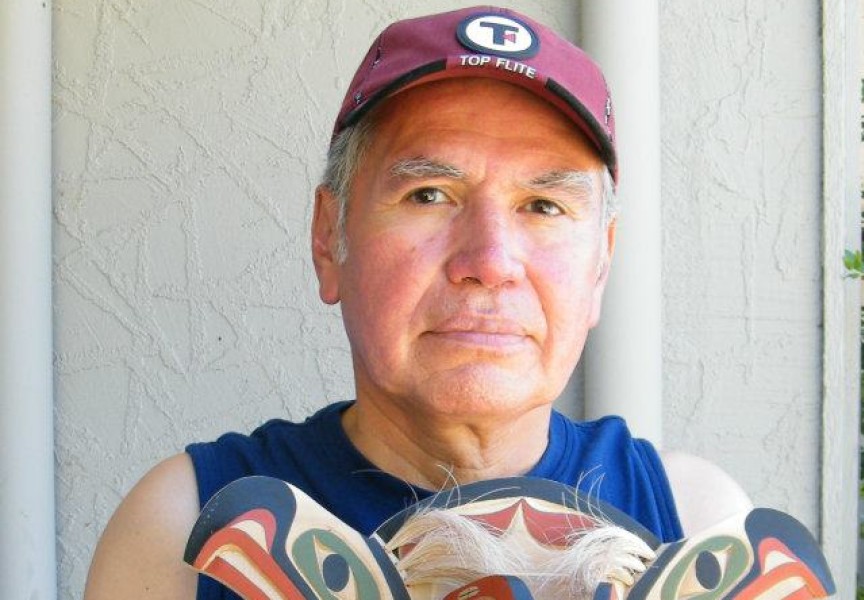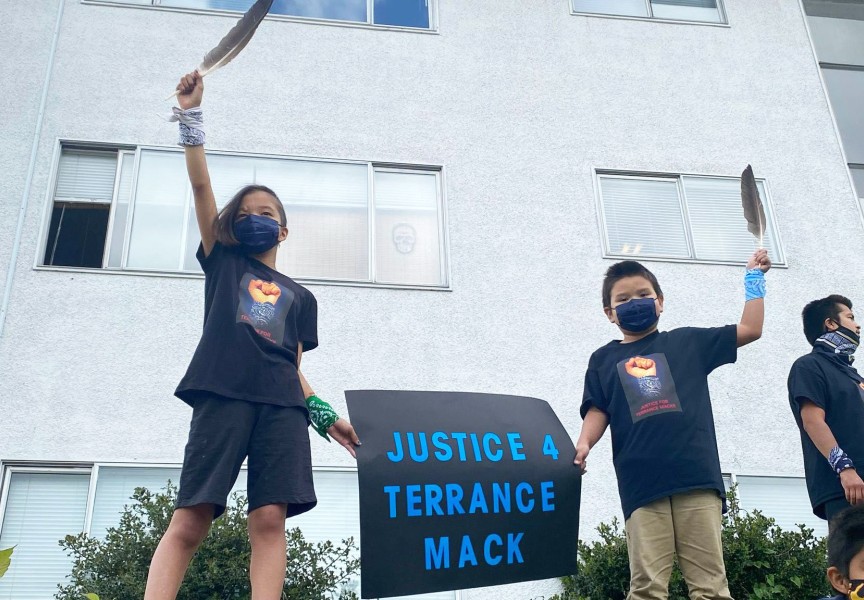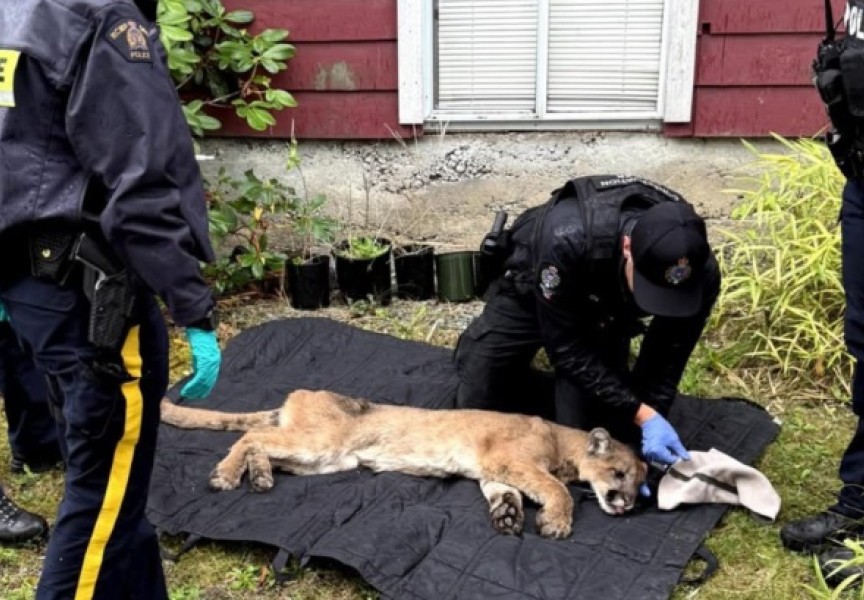With a dozen of her family members sitting in the audience, the multi-day coroners inquest into the death of Jocelyn George began today, with hope that a public examination of the circumstances around the tragedy will enable more timely intervention for others in the future.
Overseen by Coroner Margaret Janzen, a team of lawyers began their questioning of at least 30 witnesses scheduled to appear. Representing the RCMP, BC Ambulance Service, the City of Port Alberni and the public interest of the inquest itself, the legal counsellors filled the stage of Port Alberni’s Capital Theatre before a jury of five.
Although it is conducted like a courtroom, the inquest is not a trial leading to a legal judgement, but rather a public examination of the facts directly connected to George’s death in 2016. Jurors are tasked to objectively determine indications of systemic failure and make recommendations that may prevent future tragedies under similar circumstances.
According to Matthew Lucas, George’s uncle who is speaking on behalf of the family, improvements are needed in how authorities and emergency personnel deal with someone experiencing a drug-induced crisis.
“I hope that we find a way to intervene in young people that are involved in the drug world,” he said outside the Capital Theatre on the first day of the inquest. “People are still dying, I think we’ve lost more people to overdoses than the actual coronavirus. So which is the pandemic?”
Jocelyn George died from heart failure on June 24, almost exactly five years ago. On the morning of the previous day police found the 18-year-old sitting on the steps of the Salvation Army’s former location on Redford Street. Barefoot and scantily dressed on a rainy morning, the attending officers found her to be soft spoken, but delusional and appearing to be under the influence of drugs.
“She was stating to me that she was playing hide and seek and that the others hadn’t found her yet,” said retired Const. Richard Gagnon, one of the two officers who attended. “What she was saying just didn’t make sense.”
Const. Beth O’Connor found George to be vulnerable and unable to care for herself.
“She appeared to me to be under the influence of something, I would have guessed some kind of a stimulant,” said O’Connor during her testimony. “One of the responses that I recall was that she was baking cookies, that she was playing hide and seek with her friends.”
During his testimony, Gagnon, who retired from the RCMP in 2017, recounted taking George to her address of residence, but no one was there to receive her. He then brought her to her mother, Claudette Lucas, who was caring for George’s two young children and informed the officer that she would be unable to manage the teenager. In the past while in a similar state George would just leave, recounted Gagnon.
“Her mother stated to me that she was taking care of Jocelyn’s children at the time,” he said. “She just thought it was not appropriate to have her in the house in the condition she was at, so if I could take her back to cells and hold her until she was able to take care of herself.”
By 7 a.m. George was taken into custody at the Port Alberni detachment, detained under B.C.’s Mental Health Act. She remained in the cell until she was deemed fit for release at 4:23 p.m.
But about an hour later a friend called 911 reporting that George was still showing concerning behaviour. Appearing to be delusional and under the influence of drugs, she was soon assessed by ambulance personnel, who did not deem her in need of hospitalization. This put the responsibility on police to return her to a cell, where she remained for the evening.
Video footage taken over that night shows George sitting up and lying down in her cell numerous times. At 1:28 a.m. she drank water from a tap, but she wasn’t eating, and hadn’t for two days, according to what was reported to police.
When he began his shift that morning Gagnon said he heard from the cell guard that George was not getting better.
“I recall him saying that she appeared to be still under the intoxication of something, as she hadn’t eaten all night, she hadn’t drank that he was aware of and that she didn’t appear to be getting better from when she was first brought into cells,” he said. “She was just rolling around like she was still impaired.”
By 7:33 a.m. she was finally given food and water, but the cell guard noted that she did not eat and had a dry mouth, prompting another call to ambulance.
With a very low blood pressure with a high heart and respiratory rate, George arrived at Port Alberni’s West Coast General just after 9 a.m. Amphetamines and cocaine were still detected in her system, prompting a flight to Victoria’s Royal Jubilee Hospital that afternoon.
But it was already too late, recounted Lucas, who was at the Port Alberni hospital with other family members while his niece was being treated.
“They couldn’t find a pulse,” he said. “I said to the doctor, ‘It seems like my niece is gone’. He just kept saying, ‘It’s a shame that we have to move her’.”
Records show George went into cardiac arrest at 7:08 p.m., and was pronounced dead shortly thereafter. Five years later, her family has had the chance to say goodbye, but see others in Port Alberni who are undergoing similar struggles.
“In our hearts, we’ve dealt with our grieving for her. We’ve dealt with her and sent her away,” reflected Lucas as he stood outside the inquest venue in Port Alberni’s uptown district. “I hope that we can find a way to get our girls and our young people okay. When you drive down here you see people that are involved in heavy drug use. It’s a tragedy.”
The coroners inquest into the death of Jocelyn George continues this week from 9:30 a.m. to 4:30 p.m. It can be viewed online at https://www2.gov.bc.ca/gov/content/life-events/death/coroners-service/inquest-schedule-jury-findings-verdicts/inquestlivestream.

